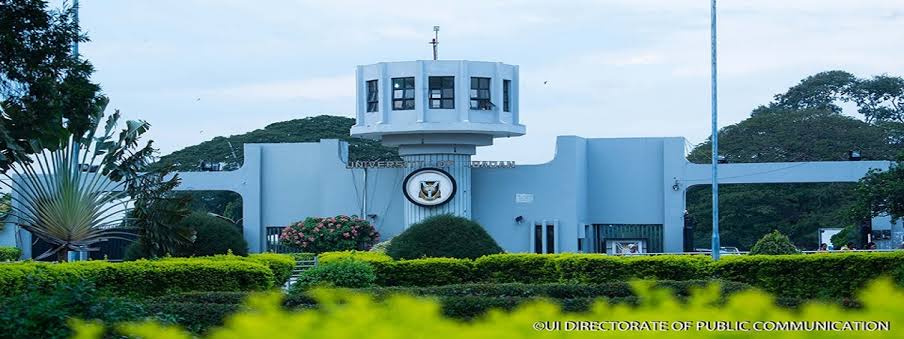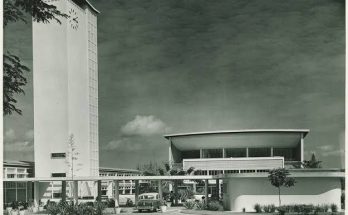
We’re back at the crossroads. The cycle of calendars at the University of Ibadan has inevitably brought us, the students, to yet another election season. The uninitiated freshmen and women will see a few hints, and sophomores and penultimate students- more perceptive – will pick up on candidature and politicking. At the same time, finalists will lead the charge, years of political expertise utilised in last acts of service to their respective student bodies. In several cases, the order will be overturned, as some freshers will prove even more politically inclined than finalists. Call it business as usual.
The thing is ‘business as usual’ quickly becomes bad business. In UI, this is the case with the politics of the day. It’s the same pattern repeated in hundreds of ways, with the hope that somehow, someway, student leaders contort into the visions the electorate has of them. Voting first, asking questions later, if at all we even ask. In all fairness, it’s the same set of people at both ends of the table, and the wheel of student politics can not exactly be re-invented. However, when that wheel hardly drives as it’s meant to, modifications become necessary. In this Editorial, we will explore the politics of the University of Ibadan Students’ Union (UI’ SU), review the place of legislature across different student bodies, examine some of the more concerning trends in UI student politics, and discuss possible solutions to some of these challenges.
The UI’ SU, as the central student body, is as important as can be, emphasised best by the events of the last two years. With the school fee increment as a focal point, beginning with the Host-led administration and spilling over to the 2023/2024 tenure, it’s become undeniable just how vital the SU is to the survival of students. A good measure of decisions that affect the collective are determined by the Students’ Union Executive Council (SUEC). These decisions, often impromptu, alter the course of so much. Some are eventually decided by students voicing out via Congress, especially when the SUEC fails to feel the pulse of students. The presence – or not – of innovative solutions to challenges facing students depends on these people, for the most part. Welfare mechanisms like the Bursary are only as successful as the SUEC, and committee members, in charge. Regulation of prices on campus. Quality Assurance in Cafeterias. Securing partnerships for students’ benefits. Competitions and Contests to harness the talents of UItes. Think of any single aspect of the student experience, and you will find a connection to the SU.
Considering all this, it’s appalling that many have reduced the SUEC to just three or four of the eight offices available. The electioneering process for certain offices is noticeably minimal. In some cases, it’s due to sole candidacy (PRO – 2021, 2024, Sports Sec – 2023,2024, AGS – 2021, 2023, 2024, Treasurer – 2024, VP – 2021, House Sec. – 2021). For others, it’s students being uninterested in positions assumed to be important. Either way, the result is leaders who escape with mediocre administrations and a student body that’s worse off for it. Sole candidates have a penchant for showing up underprepared for screening and manifesto nights, and yet taking home the motherload of votes, simply because voters know little about them or their office, and are thence uninterested in even the minutest clarifications of their own. This lack of interest also extends to voting decisions for candidates with questionable performances in previous positions. Individuals involved in misappropriation, and embroiled in other controversies, still end up elected. Those who don’t win, tally a surprisingly large number of votes, lending credence to the theory of Universities as microcosms of the country.
The state of the legislature is another not-so-separate matter. Notice the exclusion of the UI’ SU Students’ Representative Council (SRC) above? That’s the same picture in the mind of many a UIte, seeing the SU as the SUEC alone. Meanwhile, the UI SU SRC is as vital, being the union’s policy-making body. The SRC sits on more than just budgetary allocations and accounts of stewardship. And the only way people would even know this is if they were informed by the Representatives. Instead, we have Assemblies that are merely rubber-stamp factories. A good portion of UItes do not know any of the SRC members representing their Halls of Residence. Even down to the Alexander Brown Hall with just 3 and the Obafemi Awolowo Hall with about 18. SRC Notice boards in the Great Independence Hall and Nnamdi Azikiwe Hall are abandoned monuments. Representatives neither send notices of sittings nor inform their constituents of resolutions made. In some cases, constituents are more aware of the going-ons within the Hall than so-called reps, leading to a resounding emptiness on the floor of the House.
The flawed nature of the UI SU SRC is the symptom of a generalised malignancy in the legislature. At departmental, faculty, and hall levels, legislative sittings have become chores of a non-dutiful nature. Motions with little relevance in terms of impact are seconded every other month. Outdated constitutions in dire need of amendment remain in use, ultimately proving to be stumbling blocks as they do not cover newer infractions. There’s a Hall of Residence that still uses a constitution from the last century, as of two elections ago. Another uses one last amended in the 2006/2007 session. Were the Honourables at least knowledgeable about even these outdated constitutions, it would be better. However, many do not, contesting for positions only because of perks like box rooms, resume additions, and as a ladder to Executive offices. It’s because of such a malady, that in certain Assemblies, financial audits are botched; executive hopefuls doing their predecessors favours.
That’s not to say this is generalised. There are assemblies, especially at the departmental and faculty levels, that are actively committed to excellence. Assemblies who make efforts to keep their student bodies up-to-date with their activities. In such assemblies, even first-year students have a say in affairs, reducing bureaucratic red tape to a bare minimum. It’s not the most convenient of duties. It’s not as flashy as executive roles with Awards of service issued at the end of the tenure. Yet, the prestige attached to being an Honourable or a Senator suffices in such bodies. That is what we should aim for.
Moving on, two major trends in UI politics require an outright address. The first is the deplorable state of public relations from student bodies. An obsession with content creation as an alternative to more personalised engagement with relevant stakeholders seems to be the new norm. UI is overflowing with influencers disguised as PROs, whose modus operandi are poorly crafted WhatsApp broadcast messages, Tik-Tok-inspired videos, and press statements riddled with grammatical and syntax errors. Social media accounts are handled with crassness, in exchange for views and followership. Feedback mechanisms barely exist for members of these bodies to express their opinions concerning certain decisions or activities.
Massive publicity and visibility are good, quite all right. It’s not enough that only members of these bodies are aware of programs and events. There are alumni, students from other bodies, prospective sponsors, partners and the like to think about. Still, a fine balance has to be drawn between gaining visibility and presenting the appropriate image of the student body. We must maintain a professional outlook when necessary, employing tasteful online campaigns. Also, feedback. Always aim for feedback.
The second trend is the inflation of Screening scores. Results of Electoral Committee Screenings now differ markedly from that of Press Nights. Differences have always been the norm, considering the more intense nature of questions at Press Nights. However, in recent times, the margin between both appears to have widened quite worrisomely. Candidates appear in the high 80s at Electoral Screenings and surprisingly, after Press Nights, have scores in the low 60s. Candidates pass the screening benchmark of 50 employed by most bodies, by a lot, and yet fail at Press Nights. Many will suggest this to be nothing more than Campus Journalists ‘taking things too seriously’ or dismiss both results altogether, using the common excuse of these processes being mere tests of public-speaking capacity. For the former, we must ask, “Why shouldn’t we?’. Press men and women shouldn’t have to forego standards simply because apathy exists. They are students, after all, and are affected by decisions made by these leaders. Concerning the public speaking excuse, there is only so much improvisation a candidate can do, before interviewers see their shallow manifestos for what they truly are. You can’t improvise your way out of weak knowledge of the office. So, that’s not even the case.
All of these being considered, it is obvious that we are at a delicate crossroads. Business as usual will not cut it. It’s beyond campaign slogans and well-designed fliers, and the earlier we get it right, the better. The first point of call are the men and women of the Press. As Campus Journalists, we owe it to our readers to put out as much of the truth as possible. To publish stories that go between the lines, and do all we can to ensure those stories are read. Without such actions, many student leaders will escape accountability, and many who have served effectively will be sidelined by untrue narratives. Compare and contrast manifestos with actions taken during the tenure. Treat every office as important as the rest. If an article will be delayed out of a need to fact-check the contents of a disciplinary ruling from years back, so be it.
At Press Nights, endeavour to cut through the fluff to the actual meat of individual policies. We must familiarise ourselves with the constitutions of our respective constituencies. Engage with other students, and assess their opinions on matters of interest to the department, or hall, or faculty. Avoid any collisions with individuals seeking office. This is not the time to be an electioneering consultant. In fact, there’s no time at all to do that. As legislative proceedings begin to wrap up, we must ensure that documents submitted are reviewed to the best of our capacities.
The next point of call is student-voters. It’s easy to get lost in the frenzy of the SUEC Elections and ignore everything else. Or to be consumed by Departmental elections and ignore the Faculty level. Remember, it’s a harmonious whole. Speak to as many candidates as you can on the issues that affect you. Engage everyone from floor reps to those seeking to occupy the Kunle Adepeju Building with the same level of seriousness. We never know how much these things affect us until we’re stuck with floor representatives who spend more time off-campus than in their politicked-for box rooms. For sole candidates for Executive positions, ensure conviction before casting your votes in favour. An ‘Undecided’ vote is the right vote if the candidate is wrong. To know this, we would have to be present at Press Nights and Manifesto Nights, and seeing as, at most, each person has eight of such nights in total (SU, Hall, Department, and Faculty) this semester, it’s a worthy price to pay for good leadership.
We have to accord our legislative assemblies more respect by ensuring only capable hands make ‘the House’. Also, by observing proceedings from time to time. The vast majority of Assemblies are open to observers, a right exercised by the Press, already. And if at all the late-night timing doesn’t work for most, we can always join virtual sittings that take place. At the very least, source for the resolutions of the sittings, and gauge just how much representation said reps offer. When Congresses and Town Hall meetings are summoned, we are to attend and make our voices heard. We are to append our signatures to petitions that speak to our needs as individuals and as a collective.
At the last point of call are student leaders and aspiring student leaders. If there’s anything these past few months have shown us, it’s that the voice of students, while not being the voice of God, is a very close substitute. Therefore, you must amplify these voices in any capacity possible. Beyond that, seek new solutions to recurring problems facing your constituency. No one is asking you to reinvent the wheel. What we’re asking is that you abandon the old ones for new ones. Do the work you’ve been elected to do, and do it well. Or else.



